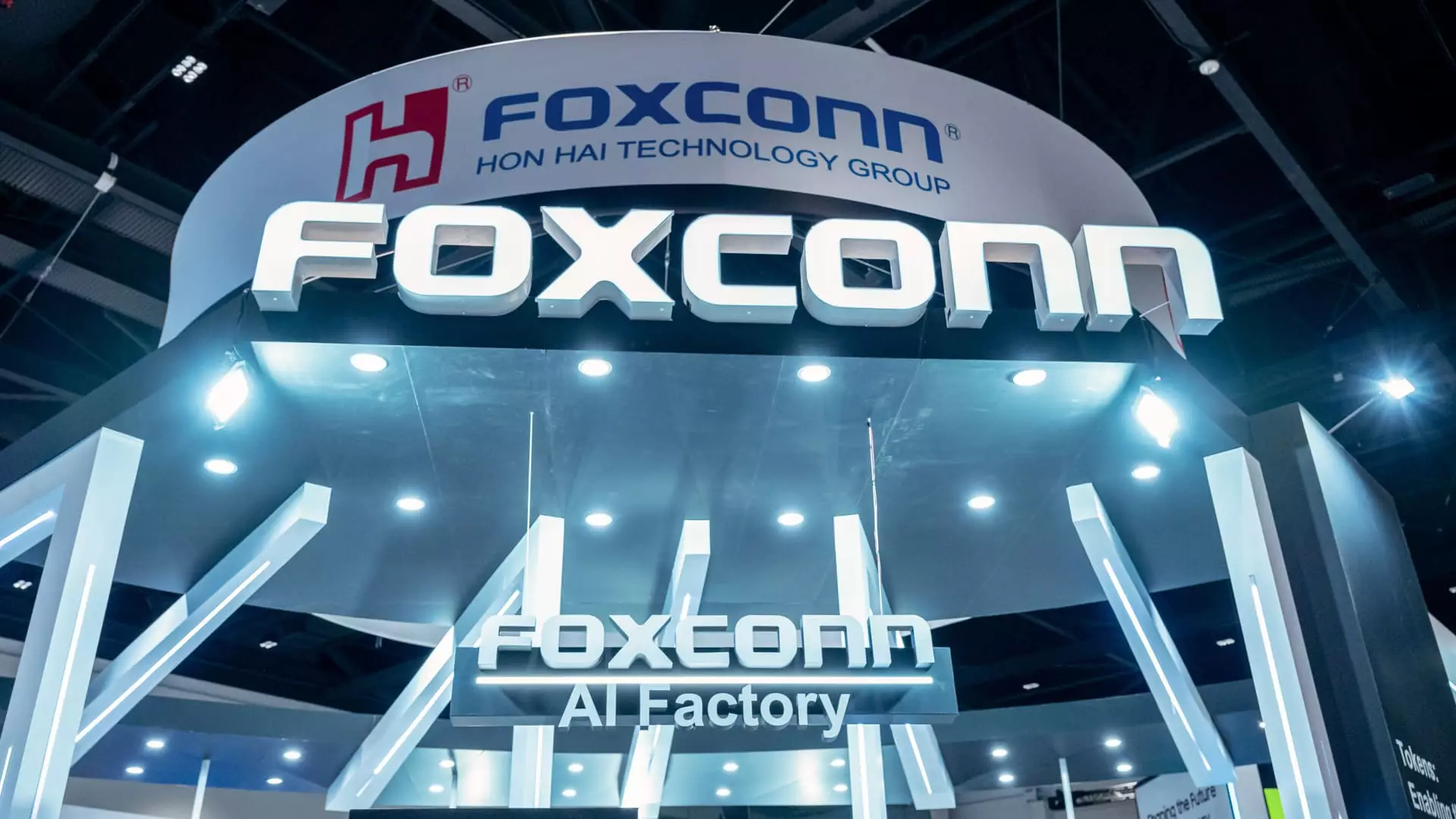Foxconn’s recent financial performance paints a picture of resilience and strategic agility. With a 27% year-over-year increase in operating profit and revenues hitting nearly $60 billion, the company clearly demonstrates its capacity to capitalize on emerging markets such as AI and data centers. This impressive quarter, especially driven by the booming AI server sector, suggests that Foxconn is setting a new trajectory, positioning itself less as a mere contract manufacturer and more as a technological powerhouse. Yet, beneath this rosy veneer lies a more complicated story—a narrative defined not only by innovation but also by geopolitical turbulence and internal vulnerabilities.
While North America and China battle over technological dominance, Foxconn seems to navigate this tumult with a pragmatic approach. Its strategic pivot towards AI server manufacturing, bolstered by its partnership with Nvidia, highlights a deliberate effort to diversify beyond traditional consumer electronics. The fact that this segment now surpasses smartphones in revenue signals an industry shift, yet it also exposes Foxconn to a risky dependence on unstable global trade dynamics. The company’s optimistic forecast of a 170% revenue increase in AI servers for the current quarter sounds promising, but is it sustainable amid the unpredictable currents of international politics?
Strategic Moves in a Divided World
Foxconn’s recent investments and strategic alliances reveal a calculated attempt to insulate itself from political headwinds. Moving more assembly operations to India is more than a cost-saving measure; it symbolizes a repositioning away from the United States, where tariffs threaten to erode profitability. The planned billion-dollar investment in U.S. manufacturing facilities, however, appears at odds with its overall strategy to diversify manufacturing bases. This contradiction underscores a fundamental reality: Foxconn is caught between conflicting worlds.
U.S.-China trade tensions, amplified by tariffs and looming regulatory barriers, are actively reshaping global supply chains. For Foxconn—whose lifeblood has long been the manufacturing of American-bound Apple products—the threat of tariffs and trade restrictions poses a serious existential risk. Trump’s proposed 100% tariffs on semiconductors and chips could become a nightmare scenario, forcing the company into a reactive stance rather than a proactive one. Nevertheless, the firm’s willingness to service the U.S. market through investments in North America signals a recognition that ignoring the U.S. consumer base is no longer viable. Yet, it remains to be seen whether these efforts can counterbalance the geopolitical headwinds with genuine long-term stability.
Innovation at the Crossroads of Politics and Profit
Foxconn’s bold push into AI, electric vehicles, and semiconductors demonstrates a strategic mindset committed to future-oriented growth. This diversification aligns well with the liberal economic principle of maintaining competitive flexibility in a rapidly changing global landscape. Still, the challenges are immense. The company’s reliance on Western technology, coupled with China’s dual role as a manufacturing hub and a geopolitical adversary, creates a precarious balancing act.
This economic stance, centered on technological sovereignty and flexible manufacturing in multiple regions, echoes a subtle form of center-right pragmatism. It advocates for market-driven innovation while recognizing that national policies—ratings of sovereignty and economic independence—must be navigated carefully. Foxconn’s investments appear to chart a course that appreciates the importance of global markets without surrendering to diplomatic vulnerabilities.
A Complex Future in a Volatile Political Arena
The core issue remains clear: Foxconn is no longer the simple manufacturing giant of years past. It is now a pivotal player caught in a geopolitical tug-of-war—a scenario that demands agility, strategic foresight, and toughness. Its recent growth pulses with optimism, yet it’s buoyed on a sea of uncertainties that could overturn its trajectory at any moment.
The company’s attempts to expand into new territories and sectors suggest an understanding that survival depends on adaptability. However, its future will be dictated less by its technological innovations than by the broader political climate. The risk is profound: ever-tightening trade restrictions, tariffs, and national security concerns threaten to undermine the very foundations of Foxconn’s global operations. Only time will reveal whether its bold strategic shift will allow it to thrive amid these headwinds or become another casualty of geopolitical discord.

